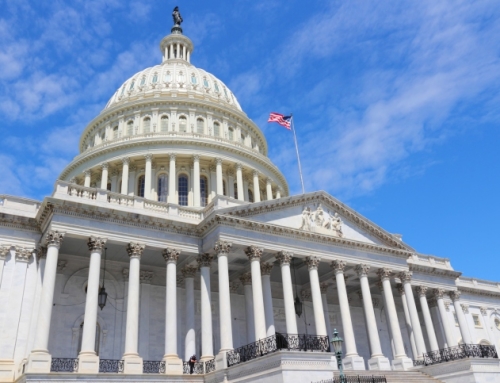Earlier this year, UK-based plumbing firm Pimlico Plumbers made headlines when it announced plans to introduce a “no jab, no job” policy, requiring its workforce to be vaccinated against Covid-19. And in June, the company advertised for new staff stipulating that successful candidates must be vaccinated against Covid-19.
Across the world, many companies are also mandating that their employees, including contingent workers, get vaccinated against Covid-19. In the US, recent data from Indeed found the share of job posts that require a Covid-19 vaccine were up 34% on Aug. 7 when compared to the prior month.
However, vaccination policies vary from country to country.
In the US, vaccine mandates are legal but there has been pushback.
For example, a recent vaccine mandate for healthcare and state workers in the state of Washington has led to protests, while in Portland, Maine, hundreds demonstrated against a vaccine mandate for healthcare workers. Recently, a professor working at George Mason University sued the university over its Covid-19 requirements, asserting that he has natural immunity to the coronavirus and does not need the vaccine.
Mandatory vaccinations for healthcare workers: A closer look
The majority of physicians in the US agree with the idea of employer mandates for the Covid-19 vaccine, with a survey from Jackson and Coker showing that 69% of physicians are in favor of this. Nearly a fifth, or 19%, said they disagree with employer mandates while 11% of physicians have mixed feelings. The poll also found that 89% of physicians have already been vaccinated.
In the UK, Sept. 16 is the last date for care workers to get their first vaccine to ensure they are fully vaccinated by Nov. 11, complying with the legislation that applies to all Care Quality Commission-regulated service providers of nursing and personal care.
A survey from Unison published earlier this year found that care staff are nearly twice as likely to turn down a Covid-19 jab if they’ve been threatened or not given vaccination advice by their employer. According to Unison, government plans for mandatory vaccinations would be counterproductive and could trigger employee shortages in a sector already in crisis.
The majority of care workers taking part in Unison’s survey, 88%, had received a jab, compared with just 12% who had not.
However, in the UK and Europe, employers cannot mandate vaccines and any vaccination orders from employers could lead to legal issues.
“There are a number of issues to consider with regards to mandatory vaccination,” the Chartered Institute of Personnel and Development stated. “Mandatory vaccination may discriminate on the basis of disability, or religious or philosophical belief. Employers cannot require employees or potential employees to be vaccinated unless they work in a sector (such as care homes) where a legal requirement has been introduced.”
Contingent workforce program managers need to work closely with their internal HR and legal departments on this topic as it could be legally challenging. Furthermore, contingent workforce program managers should familiarize themselves with national, regional and even local and company policies on mandatory vaccinations in the workplace.
“Employers have an obligation to provide a safe environment at work, but they also have to carefully balance this with the rights of their workforce,” Kate Shoesmith, deputy CEO at the Recruitment & Employment Confederation, told SIA. “It might be lawful for an organisation to mandate vaccinations in a limited number of cases – for example in health and care settings – but in most cases it will be better for employers to support staff, including contingent workers, to get the vaccine rather than making it a requirement.”
Europe and the UK
Across Europe and the UK, vaccination campaigns are up and running with many employers now looking at available options to help keep their workplaces as safe as possible.
“As there is no legislation requiring individuals to get vaccinated, employers in EU member states and the UK cannot mandate vaccinations amongst their workforce,” says Fiona Coombe, SIA’s director, legal and regulatory research. “However, there is no prohibition on encouraging vaccination where appropriate.”
Law firm Jones Day reported, “While EU and UK employers have a general obligation to ensure a safe workplace, this obligation likely does not outweigh an employee’s freedom to choose whether to be vaccinated. Instead, the focus for employers should remain on their legal obligations to minimize the risk of exposure to Covid-19 in the workplace.”
However, a recent ruling in April 2021 by the European Court of Human Rights could lay the groundwork for mandatory vaccinations across Europe in the future. The court ruled that compulsory vaccinations for children are “necessary in a democratic society” and legal experts have said this could reinforce the possibility of a compulsory vaccine.
For now, CW program managers need to consider who they can work with to minimize the risk of infection, while also ensuring they do not interfere with the freedom of their contingent workers to choose to have a vaccine. They should also be aware that, in the UK and elsewhere, they could be faced with legal action over discrimination against workers who have refused the vaccine.
CW program managers within Europe and the UK should proceed by encouraging their contingent workers to get vaccinated.
Healthcare Workers
It should also be noted that while there is no law mandating individuals, the French government as well as Greece and Italy announced recently that healthcare workers — such as doctors, nurses and office staff who come into contact with vulnerable people — will need to be vaccinated.
In the UK, the Covid-19 vaccine will become mandatory for healthcare workers (without medical exemption) from Nov. 11, 2021. The legislation, subject to approval from parliament, will apply to all Care Quality Commission-regulated service providers of nursing and personal care, in care homes in England. The guidance is aimed at service providers, registered persons, local authorities, workers (including agency staff) and residents of CQC-regulated care homes which provide accommodation for persons who require nursing and personal care. However, there are exceptions for those who can prove they are medically exempt.
In the US, giant healthcare companies such as Kaiser Permanente have announced that they will require Covid-19 vaccination for all employees and physicians amid the country’s resurging pandemic.
State governments are also mandating their healthcare workers to be vaccinated. In New York state, staff at hospitals, long-term care facilities, nursing homes, adult care and other congregate care settings will be required to be vaccinated against Covid-19 by the end of September with limited exceptions for those with religious or medical reasons.
Other Challenges to Consider
“As the idea of mandating is increasing, there are certain situations that organizations must be prepared to address including individuals not able to be vaccinated due to religion, health or other reasons,” says Dawn McCartney, SIA’s VP, Contingent Workforce Strategies Council. Another question that CW program managers should ask is if workers are not able to come into the office due to a “no jab, no job” policy, would organizations willing to allow them to work remotely, and if not, would there be other options?
Over in the US, financial services firm Morgan Stanley recently instituted a rule where only fully vaccinated workers could enter its New York office. However, those who were not vaccinated were given the option to work from home.
CW program managers should work with companies to look at the options for contingent workers who refuse to get vaccinated. They should look at the health risks that the contingent worker may pose by refusing the vaccine while in the workplace and look at options to accommodate the worker.
These options could include allowing the contingent worker to perform their duties remotely. If the worker must be present in the workplace, then the CW program managers and companies should work together to ensure the workplace is as safe as possible which could mean regular Covid-19 tests for that contingent worker, wearing a mask and keeping a safe distance from their co-workers.
More drastic options would be to allow the worker to take a leave of absence or find an alternate role for that worker that would not require the vaccination.
Varied options aside, CW program managers with company approval can encourage workers to take the vaccine, make the vaccine accessible and provide incentives to do so.
Furthermore, program managers and companies could continue communicating and educating contingent workers about how vaccinations could lead to a safer workplace and help them understand the value of inoculation.
Location notwithstanding, contingent workforce program managers should tread carefully when approaching the issue of mandatory vaccines and aim to strike the right balance of ensuring their contingents are safe while making sure they don’t run the risk of potential legal employment battles.









